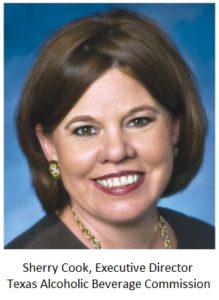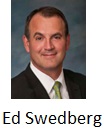According to heavily redacted text messages, a regional commander ordered state liquor agents to stand down and go home on July 7, 2016 while five Dallas cops were being murdered on the streets.
 A little more than an hour after learning that Micah Xavier Johnson was randomly targeting white police officers at a Black Lives Matter protest, and while Johnson was still at large, Major Victor Kuykendoll of the Texas Alcoholic Beverage ordered his agents to avoid the area of the shootings and go home.
A little more than an hour after learning that Micah Xavier Johnson was randomly targeting white police officers at a Black Lives Matter protest, and while Johnson was still at large, Major Victor Kuykendoll of the Texas Alcoholic Beverage ordered his agents to avoid the area of the shootings and go home.
The following day, after Johnson was killed by a Dallas PD tactical robot, TABC brass nonetheless canceled operations and ordered agents to stay in their offices and avoid areas where “anti-police” activities might be going on. You can read all the text messages by clicking here.
Nearly two weeks after the shootings, on July 20, 2016, the major sent a long CYA email to various agents defending the stand-down order. Here’s an excerpt:
…I did not convey this out to everyone at the time, but we did reach out to Dallas Police Chief Brown following the attack on his officers to offer our assistance with whatever he or his officers needed and offered our condolences for the officers injured and killed along with their families and co-workers. I understand that times were very busy for him and his staff and we did not receive a response to our offer. Had we been requested, I would have expected each of you to perform whatever task(s) that they needed with the pride and professionalism you show every day. In the future, I would rather us send a delegate, preferably a supervisor, to whatever command post exists at the time and offer our assistance in person with the folks that are coordinating these efforts on the ground.
It sounds to me as if nobody from TABC offered to help until Johnson was dead and the bullets had stopped flying. And what’s this about “Had we been requested…”? As an ex-cop, I find it hard to fathom that any cop would think that he needed to wait for a request for help. No instinct or duty should be more fundamental to a cop than protecting the innocent, even when it puts the cop’s life in danger. So when a heavily-armed murderer is roaming the streets and a massive manhunt is under way, you don’t wait for someone to ask you to intervene, you just do it.
Later in his email, the major explained his decision to cancel operations in the days following the shootings:
This was due a [sic] couple of reasons, first of which involves the emotional distress that some of our agents were experiencing following such an event, regardless if they personally knew the officers involved or not. Such an event affects us all in some degree and we need to be cognizant of this as we continue about our work. The other aspect of this decision was to allow an opportunity for both officers and the community to grieve before we end up in a situation that could create more conflict with emotions running so high on both sides of this issue.
It sounds like Maj. Kuykendoll thinks his agents are a bunch of little snowflakes who can’t handle the stress of being a cop. Elsewhere in his email, the major acknowledged that some people probably were not happy about his decision, and indeed I learned about his order because a retired agent told me that the rank-and-file agents were furious about it. Even so, none of the active-duty agents were willing to talk to me, and probably for fear of retaliation (more on that below). I could not even get someone from the TABC Officer’s Association to talk to me about the incident.
Instead, I had to file a public information request, which the TABC brass promptly appealed to the attorney general in an attempt to keep me from seeing the text messages and emails. After the AG ordered TABC to produce the records, TABC told me that I needed to come retrieve them from Austin, even though TABC had always mailed or emailed records in response to my previous requests.
Of course, none of that is particularly surprising. I’ve been writing about cronyism, corruption, and incompetence at TABC since last June. In my December 1, 2016 post, for example, I wrote about TABC Deputy Executive Director Ed Swedberg getting paid his full six-figure salary  to attend a police academy for beginners. Even though his job has no law-enforcement responsibilities, Mr. Swedberg is now eligible for a more generous retirement and a take-home car (which is pretty valuable when you’re commuting into Austin) because he is classified as a law enforcement officer. His boss, TABC Executive Director Sherry Cook, also attended a police academy while she was the deputy director and is eligible for the same undeserved benefits.
to attend a police academy for beginners. Even though his job has no law-enforcement responsibilities, Mr. Swedberg is now eligible for a more generous retirement and a take-home car (which is pretty valuable when you’re commuting into Austin) because he is classified as a law enforcement officer. His boss, TABC Executive Director Sherry Cook, also attended a police academy while she was the deputy director and is eligible for the same undeserved benefits.
Meanwhile, it’s getting hard to keep up with all of the chicanery coming out of TABC. I regularly get tips from my blog posts, but no subject has ever generated more tips than Sherry Cook’s clown posse at TABC. Even when I wrote about my state trooper friend and client, Billy Spears, getting reprimanded for a photo with Snoop Dogg, I got more tips about TABC than the Texas Department of Public Safety (Billy’s employer). Unfortunately, most of my sources are unwilling or unable to go on the record for fear of retaliation. One former agent, for example, told me that TABC recently interviewed an agent in West Texas to find out who leaked embarrassing news about the agency. There were no accusations of crime or misconduct against any agents, yet the investigation was conducted by TABC internal affairs. Paranoid much?
There are still plenty of legitimate cops on the front lines of TABC, but they’re working for pencil-pushing pseudo cops and self-serving bureaucrats. No wonder morale among the TABC rank-and-file is in the toilet.
DIRELICTION OF DUTY, PART 2
In my August 15, 2016 blog post, I wrote about how TABC was trying to block me from seeing records about another shooting in Dallas. As usual, TABC appealed to the attorney general’s office, and the AG ordered TABC to release the records. Those records don’t make the TABC brass look any better.
In the wee hours of July 23, 2016, just three days after Maj. Kuykendoll sent his CYA email and less than two weeks after Johnson’s killing spree in Dallas, four TABC agents witnessed an attempted murder near Beltline Road and Preston Road in North Dallas. Yet according to TABC records, the agents did little more than passively observe the shooting. Apparently Major Kuykendoll’s message of dereliction in the face of danger was well understood by his troops.
The senior agent at the shooting wrote that she and her partner were waiting at a stop light in the middle lane when a BMW pulled alongside them, recognized them as law enforcement, and began flashing gang signs. A Chevy Impala then pulled alongside the agents (in the lane opposite the BMW), and one of the occupants opened fire on the BMW. In other words, the agents were caught between the shooter and his intended targets.
According to an email from the senior agent, she and her partner drew their weapons and… just stood there until both cars fled in opposite directions. Agents in the other TABC car “followed the Impala and we followed after them,” but “[w]e lost the vehicle.” Apparently none of the four agents obtained a license plate, because no license plate is recorded in either the TABC or Dallas PD reports. In fact, it sounds like the agents did not even pursue the shooter (i.e., with lights and sirens), but instead just followed the vehicle like civilians until they lost sight of his car.
TABC’s records are partially redacted, but I obtained unredacted copies from Dallas PD that indicate the senior agent was Sgt. Sonia Salinas. One of my sources told me that Maj. Kuykendoll commended Sgt. Salinas’s handling of the incident. After the incident, she was promoted to lieutenant and transferred to Waco.
If I was still a cop, I wouldn’t want those people covering my back.
01/05/2017